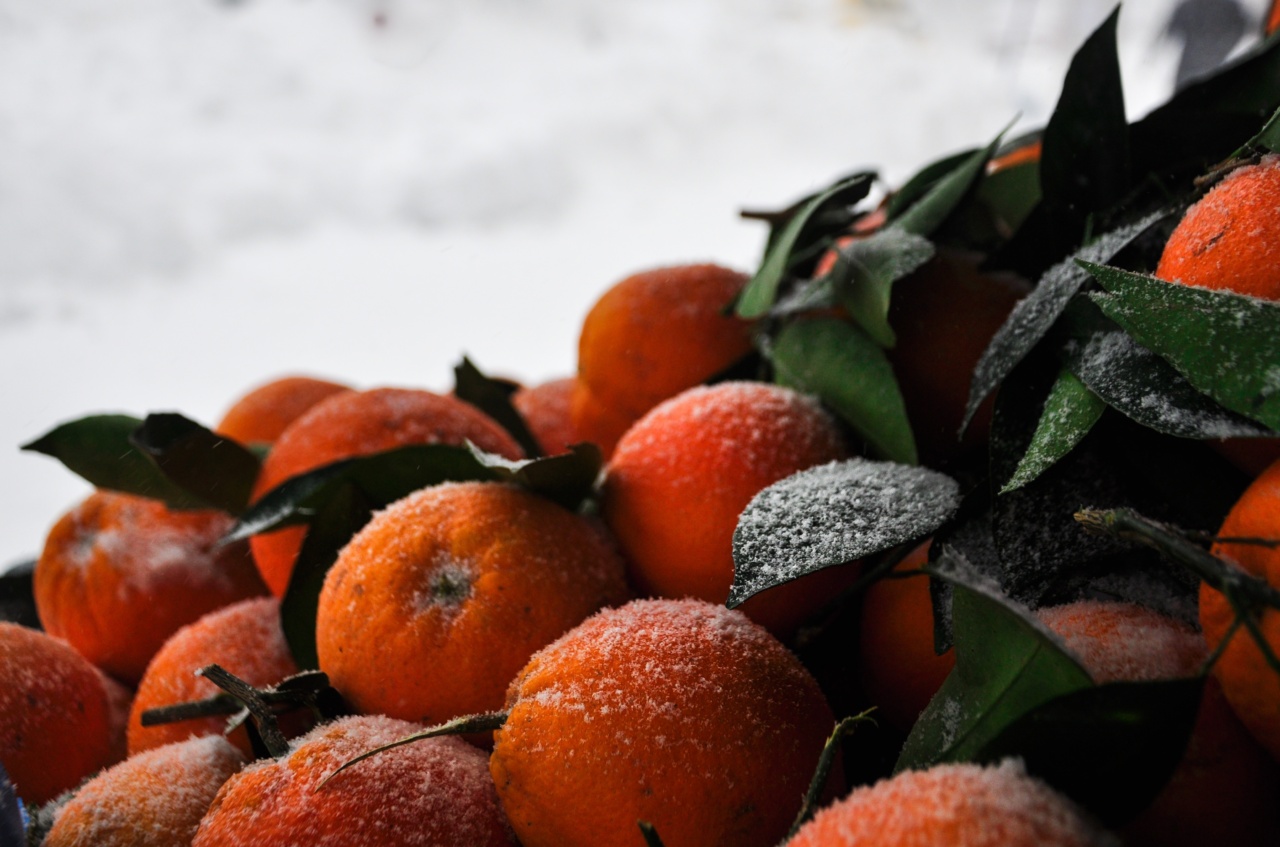During the winter season, it’s crucial to prioritize our health and immune system. The colder temperatures and shorter days can make us more susceptible to illnesses and infections.
One way to combat this is by ensuring we are getting the right vitamins and minerals to support our immune system. In this article, we will explore the top vitamins you should focus on to stay healthy this winter.
Vitamin C
Vitamin C is well-known for its immune-boosting properties. It helps stimulate the production of white blood cells, which are essential for fighting off infections.
During winter, when colds and flu are common, increasing your intake of vitamin C can help reduce the duration and severity of these illnesses. Foods rich in vitamin C include citrus fruits, berries, kiwi, and bell peppers.
Vitamin D
Vitamin D is often referred to as the “sunshine vitamin” as our skin produces it when exposed to sunlight. However, during winter, sunlight exposure is limited, and many individuals become deficient in this essential vitamin.
Vitamin D plays a critical role in supporting our immune system and overall health. It helps regulate immune cells and enhances their ability to defend against pathogens. Foods such as fatty fish, fortified dairy products, and egg yolks are good dietary sources of vitamin D.
Additionally, consider taking a vitamin D supplement if you are not getting enough sun exposure.
Vitamin A
Vitamin A is crucial for maintaining the health of our skin and mucous membranes, which act as barriers against pathogens. It also supports the production of white blood cells and antibodies, essential components of our immune system.
Foods rich in vitamin A include carrots, sweet potatoes, spinach, and red bell peppers.
Vitamin E
Vitamin E is a powerful antioxidant that helps protect our immune cells from damage caused by free radicals. It also supports the production of natural killer cells, which play a vital role in fighting off infections.
Nuts and seeds, such as almonds and sunflower seeds, are excellent sources of vitamin E.
Vitamin B6
Vitamin B6 is involved in various enzymatic reactions in our body, including those related to immune function. It helps produce antibodies and supports the growth of new immune cells.
Foods rich in vitamin B6 include poultry, fish, chickpeas, and bananas.
Vitamin B12
Vitamin B12 is essential for the production of red blood cells, which transport oxygen throughout our body. It also plays a role in maintaining a healthy immune system.
As vitamin B12 is mainly found in animal products, vegetarians and vegans should consider taking a supplement or consuming fortified plant-based foods.
Zinc
Zinc is a mineral that is involved in many enzymatic reactions in our body, including immune function. It helps stimulate the production of antibodies and supports the activity of various immune cells.
Foods rich in zinc include oysters, beef, pumpkin seeds, and lentils.
Selenium
Selenium is a trace mineral that acts as an antioxidant, protecting our cells from damage. It also helps regulate immune responses and supports the activity of certain immune cells.
Seafood, brazil nuts, and whole grains are good dietary sources of selenium.
Magnesium
Magnesium is involved in over 300 enzymatic reactions in our body, including those related to immune function. It helps support the production and activity of immune cells. Foods rich in magnesium include leafy greens, legumes, nuts, and seeds.
Probiotics
While not a vitamin, probiotics are essential for maintaining a healthy gut and immune system. Our gut microbiota play a crucial role in regulating immune responses.
Consuming probiotic-rich foods, such as yogurt and fermented vegetables, or taking a probiotic supplement can help promote a balanced and robust immune system.
Conclusion
As winter approaches, ensuring you are getting the right vitamins and minerals is essential for staying healthy. Vitamin C, D, A, E, B6, and B12, as well as zinc, selenium, magnesium, and probiotics, are all important for supporting your immune system.
Incorporate a variety of foods rich in these nutrients into your diet, and consider supplements if necessary. Remember to prioritize your health and well-being this winter!.






























